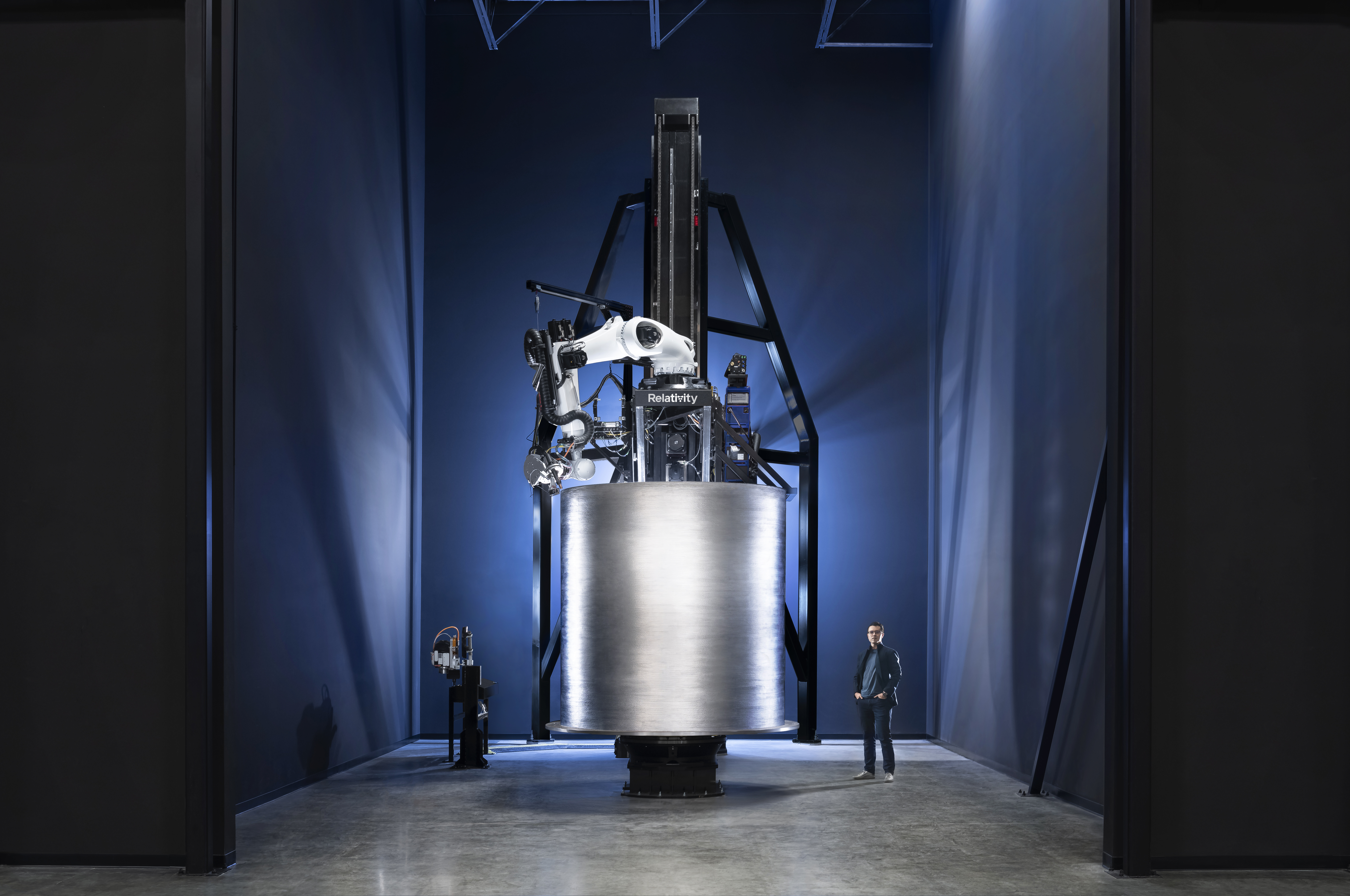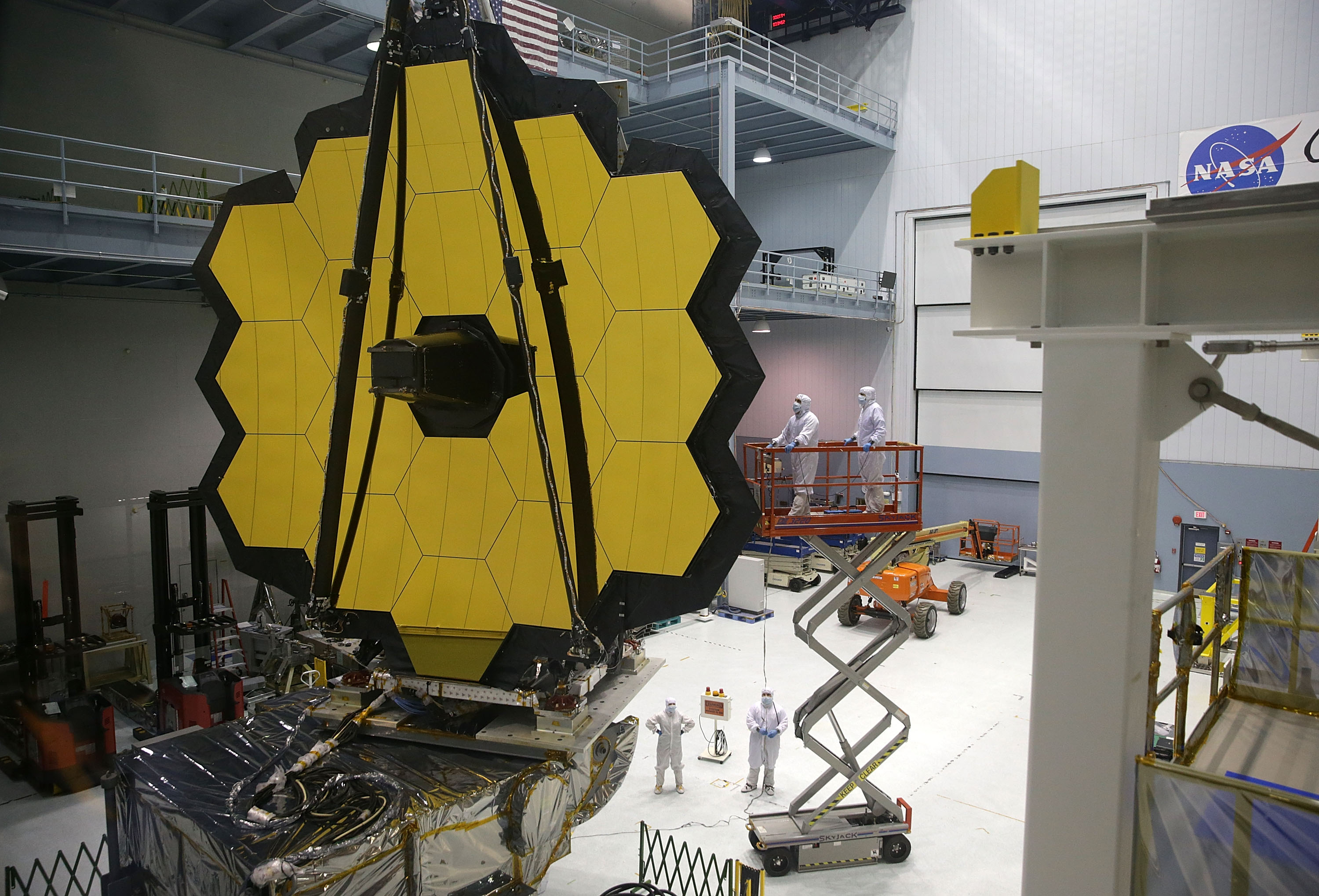Hello and welcome back to Max Q. I hope all my American readers had a restful Independence Day. In this issue:
- Rocket Lab launches NASA’s CAPSTONE mission
- The first images from James Webb Space Telescope are almost here
- News from AWS, SpaceX and more
Don’t forget to sign up to get the free newsletter version of Max Q delivered to your inbox. And by the way…TechCrunch+ is having an Independence Day sale! Save 50% on an annual subscription here. More information here.
Relativity Space inks deal with OneWeb, reaches $1.2B in Terran R launch contracts
Relativity Space will be sending OneWeb’s second-gen broadband satellites to orbit starting in 2025 using its fully reusable 3D-printed rocket Terran R, under a new multi-launch agreement. This is the fifth customer for Terran R, and the only one that has been publicly named, bringing the total value of all binding launch agreements for that rocket to more than $1.2 billion.
I spoke to CEO Tim Ellis on the news. He was pumped, as one might expect!
“To have such large contracts signed before launching, and before even launching Terran 1, I think is really speaking to the confidence that people have in the team and in our approach,” he said.

Relativity Space CEO Tim Ellis with Stargate. Image Credits: Relativity Space
Get hype for the first images from NASA’s James Webb Space Telescope
Very soon, humanity will get to view the deepest images of the universe that have ever been captured. In two weeks, the $10 billion James Webb Space Telescope (JWST) — NASA’s super expensive, super powerful deep space optical imager — will release its first full-color images, and agency officials today suggested that they could just be the beginning.
“This is farther than humanity has ever looked before,” NASA Administrator Bill Nelson said during a media briefing Wednesday (he was calling in, as he had tested positive for COVID-19 the night before). “We’re only beginning to understand what Webb can and will do.”
Check back with TechCrunch for coverage of the image release on July 12. Mark your calendars!

GREENBELT, MD – NOVEMBER 02: Engineers and technicians assemble the James Webb Space Telescope November 2, 2016 at NASA’s Goddard Space Flight Center in Greenbelt, Maryland. The telescope, designed to be a large space-based observatory optimized for infrared wavelengths, will be the successor to the Hubble Space Telescope and the Spitzer Space Telescope. It is scheduled to be launched in October 2018. Image Credits: Alex Wong/Getty Images
More news from TC…
- Asterix Aeronautics founder Fia Jones on how she wooed Rocket Lab CEO Peter Beck to launch her startup, over at TC+.
- China National Space Administration released a series of images of Mars taken by its Tianwen-1 spacecraft, in case anyone needed any further proof that the country’s space program is one to be taken seriously.
- Rocket Lab launched NASA’s CAPSTONE mission to the moon from the company’s New Zealand launch complex. CAPSTONE will test a unique lunar orbit that could eventually be used by a lunar outpost/space station.
…and beyond
- Airbus UK won a €160 million ($168 million) contract from the European Space Agency to develop a satellite capable of measuring heat emitted by Earth into space.
- Axiom Space and Collins Aerospace, the two companies that won bids to develop the next space suits for NASA astronauts, were the only companies to place bids.
- Boeing and NASA may conduct the first crewed flight of Boeing’s Starliner spacecraft as early as this December, according to internal schedules obtained by Eric Berger, though the agency has not yet set an official date.
- Expace, a developer of solid rockets and a subsidiary of the state-owned defense company China Aerospace Science and Industry Corporation, closed a $237 million Series B round.
- Leanspace, a French startup, closed a $6.35 million seed round for its space-focused cloud platform.
- NASA’s Space Launch System rocket could see flight as early as August 23. That flight would be the uncrewed maiden voyage for the $20 billion rocket.
- SpaceX launched SES-22, a geostationary communications satellite, bringing the total number of Falcon 9 rocket launches this year to 27.
- SpaceX obtained permission from the U.S. Federal Communications Commission to begin operating its Starlink satellite broadband service on a range of vehicles, including boats, airplanes and RVs.
- Velo3D made a $250,000 in-kind investment in Plasmos, a propulsion startup developing rocket engines.
- Venture Orbital Systems closed a $10.4 million Series A to continue developing its orbital launcher, Zephyr.
- Virgin Orbit set up a Brazilian subsidiary and received regulatory approval to conduct launches of its LauncherOne craft from Brazil as soon as 2023.
Image of the week

This illustrated plate, published in 1613 by Italian astronomer Galileo Galilei, shows the movement of sunspots on the Sun’s surface. Twenty years after this image was published, he was found guilty of heresy by the Roman Inquisition, in part due to his belief that the Earth was not the center of the universe. Image Credits: SSPL/Getty Images
Max Q is brought to you by me, Aria Alamalhodaei. If you enjoy reading Max Q, consider forwarding it to a friend.
from TechCrunch
via Click me for Details
No comments:
Post a Comment